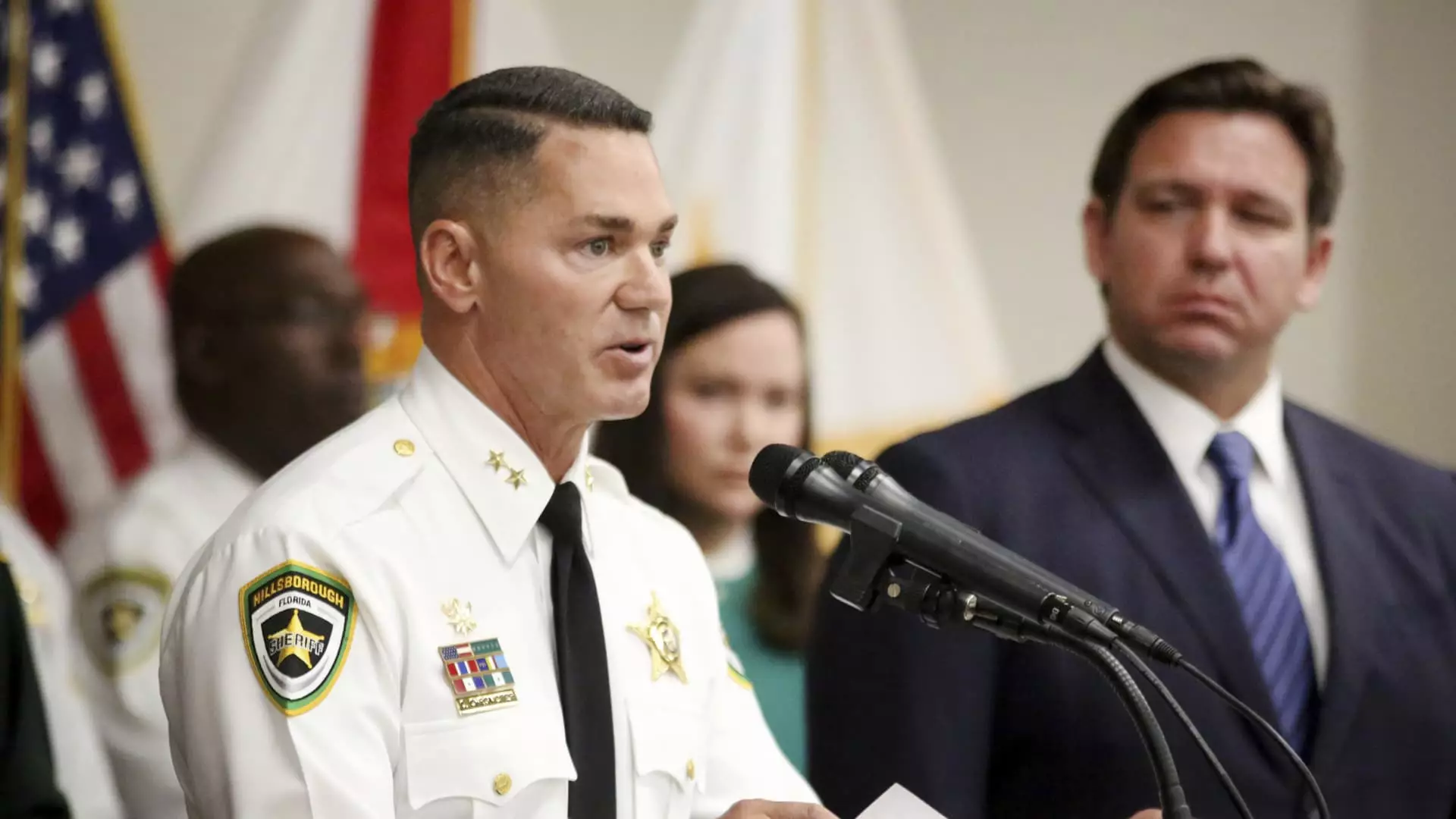Chad Chronister’s unexpected decision to withdraw from consideration for the role of head of the Drug Enforcement Administration (DEA) has stirred discussions regarding President-elect Donald Trump’s cabinet choices, particularly in the field of drug enforcement. This incident marks a critical moment in the transition period, reflecting both the challenges of personnel selection and the complex landscape of drug policy in America.
The nomination of Chad Chronister—a well-regarded sheriff from Hillsborough County, Florida—initially seemed to resonate well within certain circles of the Republican party. Yet, just three days after his announcement, Chronister decided to step back, citing the significant responsibilities associated with the position as a primary reason for his withdrawal. His statement, filled with humility and respect for the position, illustrated his deep commitment to his current role and responsibilities within Hillsborough County. It demonstrates a conscientious approach to leadership, reflecting a trend in public service where candidates weigh their ability to fulfill obligations significantly before taking on new roles.
Chronister is not alone in his reconsiderations following a nomination from Trump. This incident follows closely on the heels of former Rep. Matt Gaetz’s withdrawal from consideration for attorney general. Such withdrawals indicate a level of apprehension around serving in Trump’s second-term cabinet, which may stem from the high-stakes environment associated with these roles. Being nominated by the president is a significant honor that carries immense responsibility, and for some, the gravity of that responsibility may induce second thoughts.
The ramifications of Chronister’s step back extend beyond just personal considerations. It underscores potential divisions within the Republican party concerning appointments. In particular, Rep. Thomas Massie’s public remarks regarding Chronister’s past actions during the COVID pandemic highlight the scrutiny Trump’s choices face, especially concerning public health measures that became contentious during that period. The complexity of public opinion on law enforcement and health policy during emergencies adds to the difficulties involved in gathering consensus around leadership selections.
The DEA plays a critical role in shaping America’s response to drug-related issues, including the rampant flow of fentanyl and other illegal substances across the southern border. Chronister’s nomination was accompanied by Trump’s emphasis on securing borders and combating drug trafficking. However, his withdrawal raises questions about who will ultimately take the helm of a vital agency with far-reaching implications for public safety and health.
Trump initially praised Chronister for his potential collaboration with Attorney General Pam Bondi, framing their partnership as essential to achieving drug enforcement goals. The absence of strong leadership at the DEA could hinder progress in addressing the opioid crisis and related public health challenges. The priorities of the administration and public confidence in the DEA’s capabilities will likely dictate how effectively the agency can respond moving forward.
Chronister’s withdrawal is a telling narrative that speaks volumes about the complexities of filling high-level government positions in a polarized political climate. It implies that those willing to serve in such capacities might face scrutiny and opposition even from within their party—a dynamic that could dissuade prospective nominees from stepping forward.
As Trump continues his search for suitable candidates for the DEA and other significant roles within his administration, the implications of these withdrawals could lead to a delayed or weakened government response to pressing drug-related issues. The substance of drug policy, the health of communities, and the operational integrity of the DEA rest upon the administration’s capacity to fill these leadership roles with individuals who not only have the expertise but can also navigate the existing political landscape.
Chad Chronister’s withdrawal from consideration for the DEA administrator position illustrates the multifaceted challenges faced by Trump’s administration and the necessity of careful scrutiny in the selection of candidates. As history has shown, the choices made during this transitional phase will reverberate through both national policies and local communities, profoundly impacting the fight against drug abuse and trafficking in the United States.



Leave a Reply